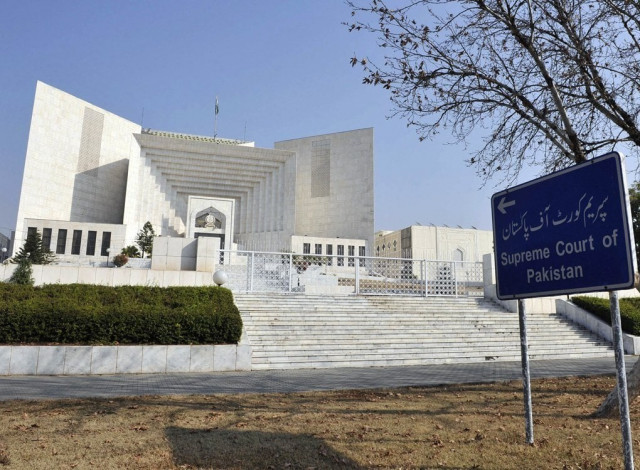SC quashes NAB reference against oil firm
NAB cannot assume jurisdiction when neither Ogra nor FBR alleged any violation of law, observes Justice Ayesha

The Supreme Court has quashed the reference of the National Accountability Bureau (NAB) against Shell Petroleum which accused the multinational company of illegal sale of jet fuel.
A three-member bench, comprising Justice Umar Ata Bandial, Justice Mansoor Ali Shah and Justice Ayesha Malik, on Wednesday took up Shell’s petition, requesting the top court to quash the NAB reference.
NAB had filed a reference against Shell alleging that the sale of aviation fuel was restricted to the aviation sector and the armed forces and it could not be sold to a third party. The Pakistan State Oil (PSO) had filed a complaint with NAB that the oil firm was selling JP-1 through a third party (Aero Lube) while it was obliged to sell it directly and only to the aviation sector.
Senior counsel Makhdoom Ali Khan, representing Shell Petroleum, argued that there was no difference between aviation fuel and kerosene oil, adding there was no restriction in any law or in any policy or regulation of the government on its sale in the market to the private sector.
He mentioned that Oil and Gas Regulatory Authority (Ogra) had not only refrained from taking any action against the oil firm but had also informed the accountability watchdog that Shell had not incurred any criminal liability by such action.
The counsel informed the court that the entire prosecution was based on a complaint by its competitor PSO which was also shorn of any details.
In a separate letter, the ministry of petroleum and natural resources also informed NAB that the price of aviation fuel had been deregulated and the conduct of Shell did not violate any law.
NAB nevertheless went ahead thereby causing colossal losses to the reputation and business of the company, the counsel said, adding that two of its employees had suffered incarceration and were facing a criminal trial for the last 5 years.
Justice Mansoor Ali Shah observed that there was no fiduciary relationship between the company and the state and nothing was entrusted to it by the state and its private commercial acts which did not violate any law could not constitute a criminal breach of trust.
Justice Ayesha Malik wondered how could the NAB assume jurisdiction when neither Ogra nor the FBR had alleged any violation of the law. There was no allegation of any revenue loss, she noted.
The Ogra itself confirmed that PSO too had been selling the jet fuel to the private sector, she observed and further said that there was no basis for NAB to interfere in a commercial dispute between two private entities and start a prosecution which apparently was without jurisdiction.
Chief Justice Umar Bandial was of the view that NAB should be careful in proceeding against business and commercial enterprises unless a clear-cut case of corruption was made out.
“Such charges should not be pressed on whims or convoluted theories of complicity,” he observed and added that these actions would further weaken the economy and scare private investment away.
The CJP also informed the additional prosecutor NAB that the conduct of the accountability watchdog was so devoid of legal basis in this case that his colleagues were of the view that a penalty should be imposed on NAB for causing harassment to the business sector and intimidating its employees.
He was of the view that in such cases costs should be imposed on NAB for initiating prosecutions without a proper application of mind and thorough investigation.
The additional prosecutor NAB asserted that as the entire evidence before the accountability court had concluded the Supreme Court should not interfere and allow the trial court to decide. He argued that earlier judgments of the apex court had supported this view.
Justice Ayesha Malik observed that all those judgments were distinguishable as the Supreme Court had never held that prosecutions should be permitted to continue in such circumstances where NAB had no jurisdiction.
The court passed a short order accepting the petitions, converting these into appeals and allowing them with the result that the proceedings in the accountability court against Yasserul Haq Afindi and Abbas Haider, both employees of Shell, were quashed.



















COMMENTS
Comments are moderated and generally will be posted if they are on-topic and not abusive.
For more information, please see our Comments FAQ